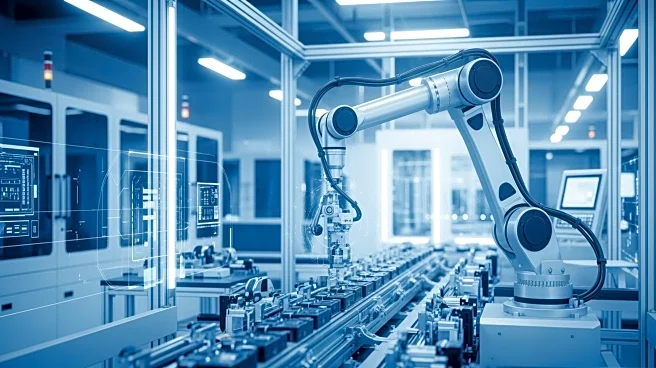What's Happening?
Despite the promise of Industry 4.0 to revolutionize manufacturing, many companies are struggling to realize its full potential. While modern manufacturing plants are equipped with advanced data collection systems, the expected improvements in efficiency
and quality have not materialized for many. Common issues include dashboards that fail to inform decision-making and digital pilots that do not integrate into daily operations. The concept of decision intelligence (DI) is highlighted as a solution, bridging the gap between data overload and actionable insights. By combining AI with Lean Six Sigma methodologies, manufacturers can better translate data into meaningful improvements.
Why It's Important?
The challenges faced by manufacturers in implementing Industry 4.0 technologies underscore the complexity of digital transformation. While the potential for increased efficiency and reduced waste is significant, the reality is that many companies are not yet equipped to fully leverage these technologies. The emphasis on decision intelligence highlights the need for a structured approach to data analysis, ensuring that insights lead to tangible improvements. This is crucial for maintaining competitiveness in a rapidly evolving industry landscape.
What's Next?
Manufacturers are likely to focus on integrating decision intelligence into their operations, ensuring that data-driven insights lead to actionable improvements. This may involve retraining staff and restructuring workflows to better align with new technologies. As companies refine their approaches, there may be increased collaboration with technology providers to develop more effective solutions. The ongoing evolution of Industry 4.0 will require manufacturers to remain agile and open to new strategies for leveraging data.
Beyond the Headlines
The struggle to implement Industry 4.0 technologies effectively highlights the broader challenges of digital transformation across industries. While the potential benefits are clear, the path to achieving them is complex and requires a strategic approach. Companies that succeed in integrating decision intelligence into their operations will likely gain a competitive edge, while those that fail to adapt may fall behind. This underscores the importance of continuous learning and adaptation in the face of technological change.
















